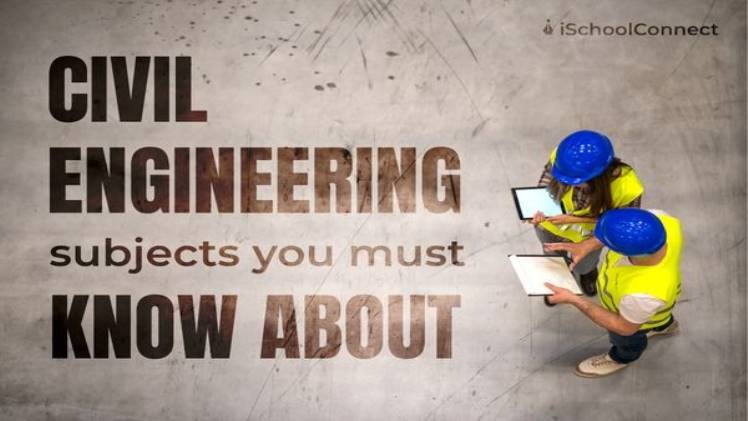Civil Engineering Course: What You Need to Know

Introduction
Civil engineering may entice you as a potential field of study, for its reputation as a challenging yet fulfilling pursuit is not unwarranted. However, what exactly does this discipline encompass, and what does its course involve? Allow us to provide a detailed account of the civil engineering course and to quell any uncertainties you may harbour.
Overview of Civil Engineering
If the domain of civil engineering catches your fancy, you’re in for a treat! It’s a gratifying field that contributes tangibly to society. Taking on the title of civil engineer carries the responsibility of fabricating and establishing major physical constructions, including bridges, highways, airports, and power plants. Grasping the field’s core concepts is necessary before you can dive into these mammoth undertakings. Civil engineering courses encompass various topics relevant to construction, such as engineering mechanics, structures, transportation systems, and water resources development. Expect to acquaint yourself with the planning and design process integral to civil engineering projects.
Need help determining where to commence? Most civil engineering courses begin with an overview of the essential principles and practices within this field, providing a glimpse of the most pertinent subjects for your career trajectory. Afterward, civil engineers can delve into more specialized areas like geotechnical engineering, hydraulics, and hydrology.
Please visit for more information: SW418 Login
Types of Degrees & Certificates in Civil Engineering
Achieving success in civil engineering requires several types of degrees and certifications. For your easier comprehension of the potentials, here is an extensive overview of some of the alternatives attainable:
- Associate’s Degree
- Bachelor’s Degree
- Master’s Degree
- Certificates
Typical Courses & Curriculum in a Civil Engineering Program
Before launching yourself into a venture in civil engineering, you should familiarise yourself with the courses and curriculums your academic institution can offer to see success.
The typical curriculum at a civil engineering program will typically include the following:
- Mathematics
- Science
- Engineering
- Civil Engineering Topics
Advantages & Disadvantages of Pursuing a Civil Engineering Course
As we contemplate enrolling in a civil engineering course, it is important to remember that there are positive features to gain and potential downsides to consider. Let’s take a look at both sides.
- Advantages: Pursuing a degree in civil engineering has several advantages, the foremost being the job market. With multiple infrastructure projects ongoing globally, civil engineers are highly sought-after. Furthermore, they can specialise in different areas by building bridges, buildings, and other structures. There are also rapid career advancement opportunities, with some even becoming directors and managers of engineering firms.
- Disadvantages: A civil engineering degree can come at an expense; textbooks, materials, and software are just some of the costs associated with such a pursuit. Even so, time is also an investment – studying for exams and completing coursework is necessary to succeed. Last, civil engineering courses can be quite demanding and require much effort.
Conclusion
If the prospect of pursuing a civil engineering course has piqued your interest, brace yourself for a fulfilling, albeit demanding, journey. The coursework is intricate and necessitates a significant commitment of time and effort, but the dividends are more than worthwhile. You will acquire a profound knowledge of how to leverage scientific and mathematical concepts to erect and preserve mammoth constructions such as bridges and, in addition to that, obtain invaluable proficiencies that will last a lifetime.


